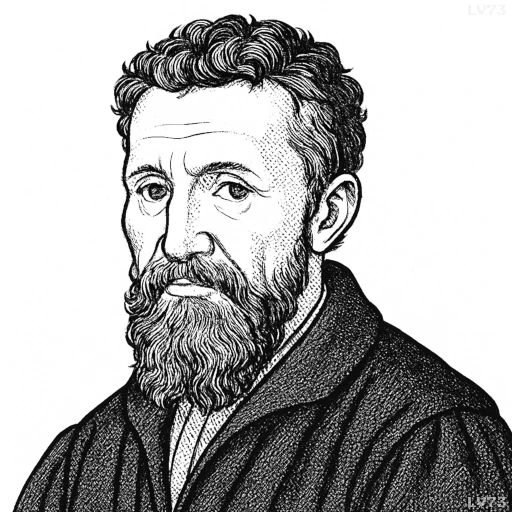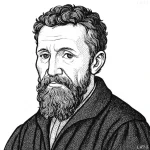“If people knew how hard I worked to get my mastery, it wouldn’t seem so wonderful at all.”

- March 6, 1475 – February 18, 1564
- Born in the Republic of Florence (now Italy)
- Sculptor, painter, architect, poet
table of contents
Quote
“If people knew how hard I worked to get my mastery, it wouldn’t seem so wonderful at all.”
Explanation
This quote attributed to Michelangelo highlights the hidden struggle and dedication behind the artist’s perceived genius. He is acknowledging that the mastery of his craft—whether it be in sculpture, painting, or architecture—did not come easily or naturally, but was the result of immense effort and hard work. Often, the public marvels at the finished product, but they may not see the countless hours of practice, trial and error, and personal sacrifice that went into achieving such skill. Michelangelo is emphasizing that his success was not simply a result of innate talent but of relentless work and perseverance.
This quote has universal relevance in many fields, from the arts to sports, science, and even business. It echoes the sentiment that success is often built on a foundation of unseen labor, not just on brilliance or inspiration. In the modern world, many high achievers—from athletes to entrepreneurs—speak about the rigorous effort behind their accomplishments. For example, in fields like music or writing, creators may put in years of practice, revision, and improvement before reaching any level of recognition. This highlights the importance of grit and dedication in any pursuit of mastery.
Michelangelo’s remark also reflects a kind of humility and perhaps a desire for recognition of the hard work behind his genius. During the Renaissance, artists were highly regarded, but there was still a strong emphasis on the divine and supernatural elements of their work, with many viewing artistic achievement as a gift from God. Michelangelo, however, seems to be suggesting that the truth behind artistic achievement is not purely divine inspiration, but human effort—a concept that aligns with more modern views of meritocracy and the belief that hard work is central to success, no matter the field.
Would you like to share your impressions or related stories about this quote in the comments section?


